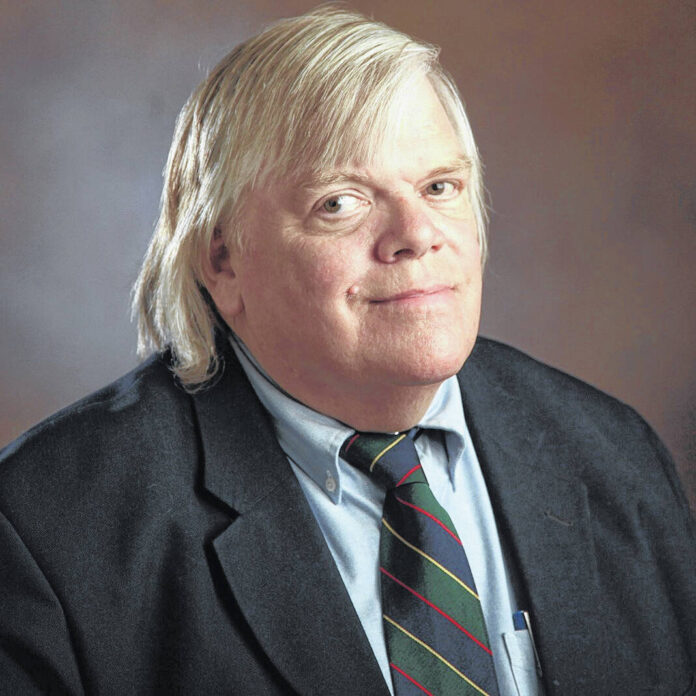As 2023 begins, Ohio Republicans are in the strongest Statehouse position they’ve enjoyed since the 1960s.
The question now, as Humpty Dumpty said to Alice, “is which (one) is to be master — that’s all.”
True, another question, being answered only in driblets, is how far and how high Ohio’s House Bill 6/FirstEnergy scandal reaches, questions the forthcoming federal trial of Republican former Ohio House Speaker Larry Householder may answer. (Householder, facing corruption charges connected with HB 6’s passage, is presumed innocent unless a jury convicts him.)
For now, though, red state, blue state, bellwether — whatever: For the next two years, leading up to the 2024 presidential and Senate elections, Ohio is demonstrably and safely Republican, with just one Democrat of statewide consequence, Sen. Sherrod Brown of Cleveland. (And several Republicans are lining up to challenge Brown.) Meanwhile, U.S. Sen.-elect J.D. Vance, a Cincinnati Republican, took his Senate seat on Tuesday.
When the General Assembly opened its 2023-24 session, also on Tuesday, Republicans held 26 of the state Senate’s 33 seats and 67 of the Ohio House’s 99. Those totals, in each chamber, are the widest GOP margins since Ohio began to elect legislators from single-member districts in November 1966.
Among other consequences, those tallies mean Senate and House GOP caucuses have enough votes to override vetoes — and enough to declare a bill an emergency measure, which prevents voters from forcing a statewide up-or-down vote on such bills.
The GOP leaders of the two General Assembly chambers: Senate President Matt Huffman, of Lima, and House Speaker Jason Stephens.
Meanwhile, Republican Gov. Mike DeWine, will be sworn in for a second term on Jan. 9 in a Statehouse ceremony, along with his running mate, Lt. Gov. Jon Husted. DeWine drew 62% of the statewide vote in November to win re-election. (Republicans also hold every other elected statewide executive office — attorney general, auditor, secretary of state and treasurer.)
Butler County Republican Sharon L. Kennedy, since 2012 a justice of the Supreme Court, begins a six-year term as its chief justice. That makes Kennedy, once a Hamilton police officer, head of Ohio’s court system. In November, Kennedy drew 56% of the statewide vote to be elected the court’s chief justice.
And soon joining the Supreme Court, by courtesy of a DeWine appointment, will be Hamilton County Prosecuting Attorney Joseph T. Deters, a Cincinnati Republican, to the remaining two years of Kennedy’s term as a justice.
Deters and DeWine are reputedly close, and in 2019 DeWine appointed the prosecutor’s brother, Dennis P. Deters, to the Public Utilities Commission of Ohio and reappointed him in 2021. Once Joseph Deters is sworn in as a Supreme Court justice, the high court will be (as it has been) 4-3 Republican.
DeWine can’t run for re-election in 2026 because of Ohio’s two-consecutive-terms limit, and Thursday will be his 76th birthday. It’s difficult to imagine DeWine running for another office again. That suggests a Republican free for all (first) for Democrat Brown’s U.S. Senate seat next year and (then) for the governorship in 2026. Husted, DeWine’s running mate in 2018 and 2022, is an obvious possibility for the governorship, but four years is a long way off.
Meanwhile, in theory anyway, the Ohio Redistricting Commission, which Huffman dominates, is seemingly obliged to draw new General Assembly districts before 2024’s election.
And that will almost certainly be litigated in front of the Supreme Court, whose new chief, Kennedy, is arguably the most conservative justice to sit on the court in decades.
Unlike the chief justice whom Kennedy succeeded, fellow Republican Maureen O’Connor, who’s retired, Kennedy supported the pro-GOP districts the Redistricting Commission drew last year, as did the court’s other two Republicans.
Kennedy is now in a position of enormous leverage over the one single thing state legislators care about the most — their districts’ boundaries. Legislators like to pick their own constituents, rather than have constituents pick their own legislators.
This new week, have a look at all the Republican backslapping at the Statehouse. Then brace yourself for brickbats to fly — say, by mid-March.
Thomas Suddes, a member of the Cleveland.com editorial board, writes from Athens, where he works as an assistant instructor at Ohio University. His column does not necessarily reflect the opinion of The Lima News editorial board or AIM Media, owner of The Lima News.







